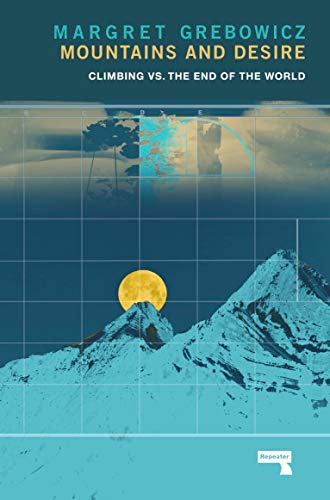
Mountains and Desire: Climbing vs. The End of the World

“The Power and Promise of Ecological Feminism,”
Margret Grebowicz • Mountains and Desire: Climbing vs. The End of the World
a climb is like an essay, “the attempt to see where a working hypothesis ends up,” motivated not by the hypothesis, but by fascination.
Margret Grebowicz • Mountains and Desire: Climbing vs. The End of the World
My working hypothesis is that climbing is not just something that happens on the mountain’s surface, not when the whole world is watching. At least since Mallory, it has taken the form of cultural/ semiotic extraction, and this extraction seems to have reached its “peak” moment.
Margret Grebowicz • Mountains and Desire: Climbing vs. The End of the World
mountaineer is exactly the opposite: process-oriented, achieving self-knowledge in the process of transcending her self, and “may show moral responsibility for the welfare of others.”
Margret Grebowicz • Mountains and Desire: Climbing vs. The End of the World
Rather than the question of unnecessary risk, he argued, the most important question is what publicity costs the climber in terms of what he called “innocence.”
Margret Grebowicz • Mountains and Desire: Climbing vs. The End of the World
ability — in order to do it, you have to really want it — so that the act and the desire ultimately become synonymous, as if desire itself were a kind of human flight.
Margret Grebowicz • Mountains and Desire: Climbing vs. The End of the World
mountains do not actually provide 360-degree views from the top.
Margret Grebowicz • Mountains and Desire: Climbing vs. The End of the World
Meanwhile, climbers continue to climb in pursuit of the very mountain thereness that unsustainable, bottomless economic growth continuously threatens.